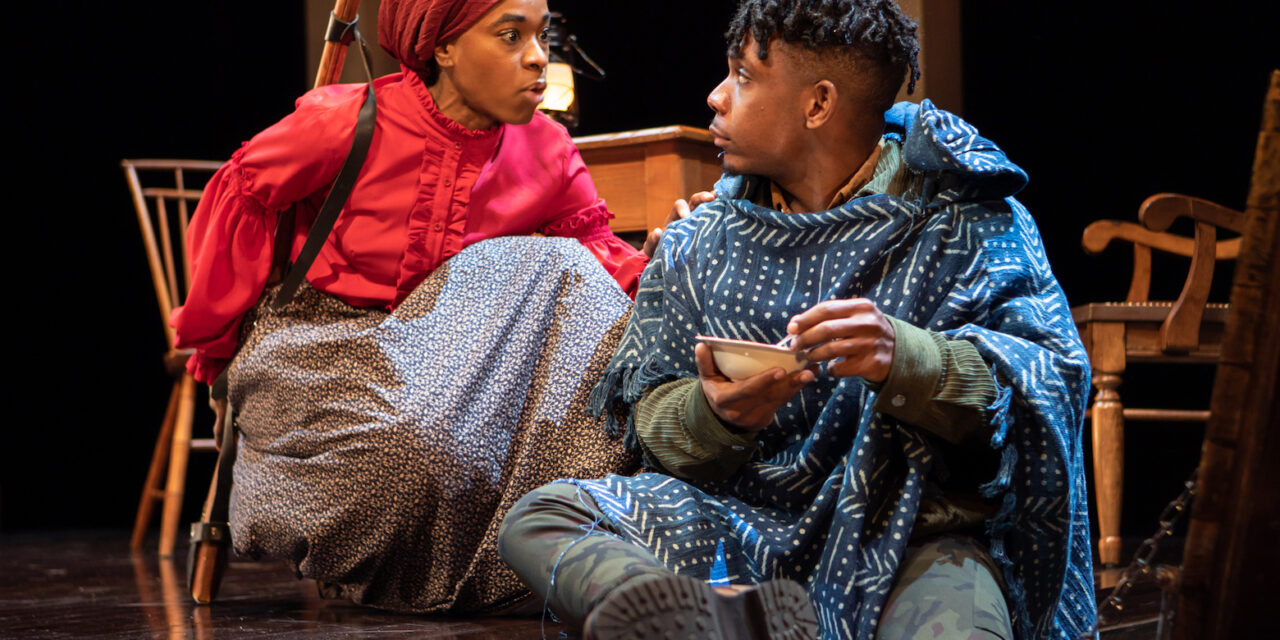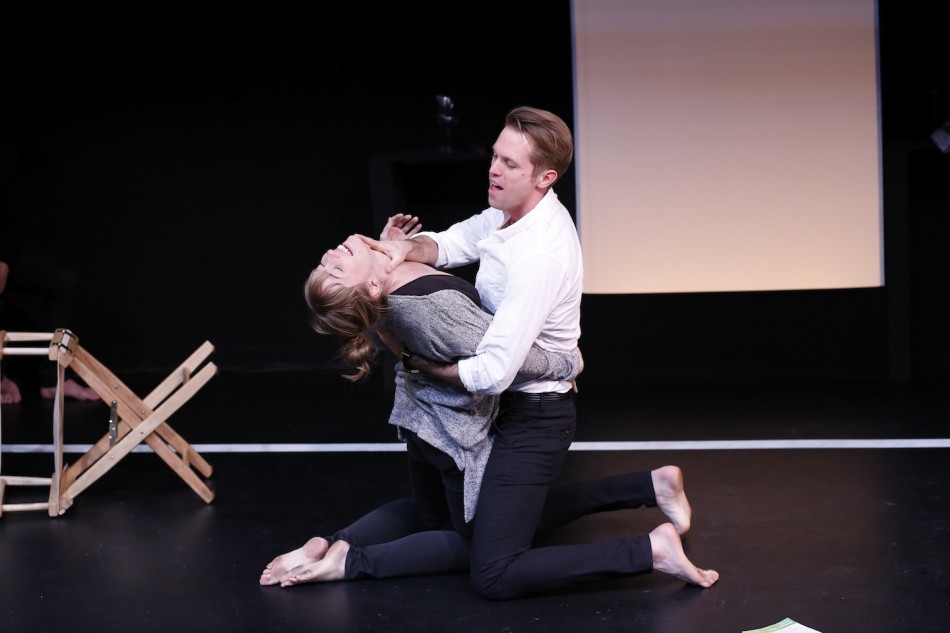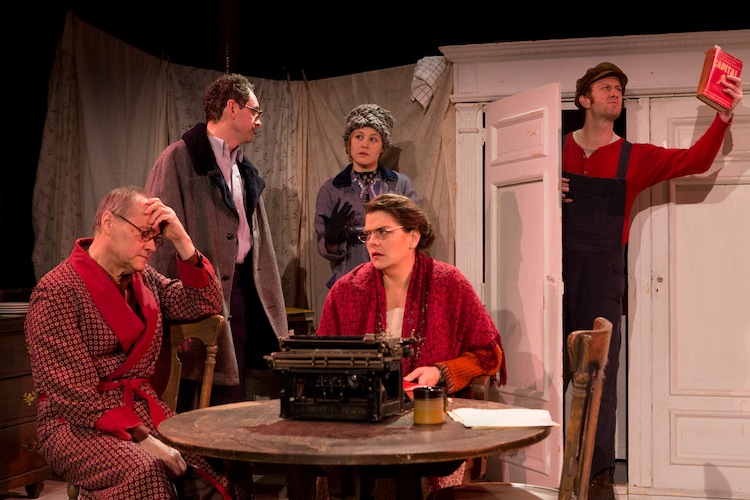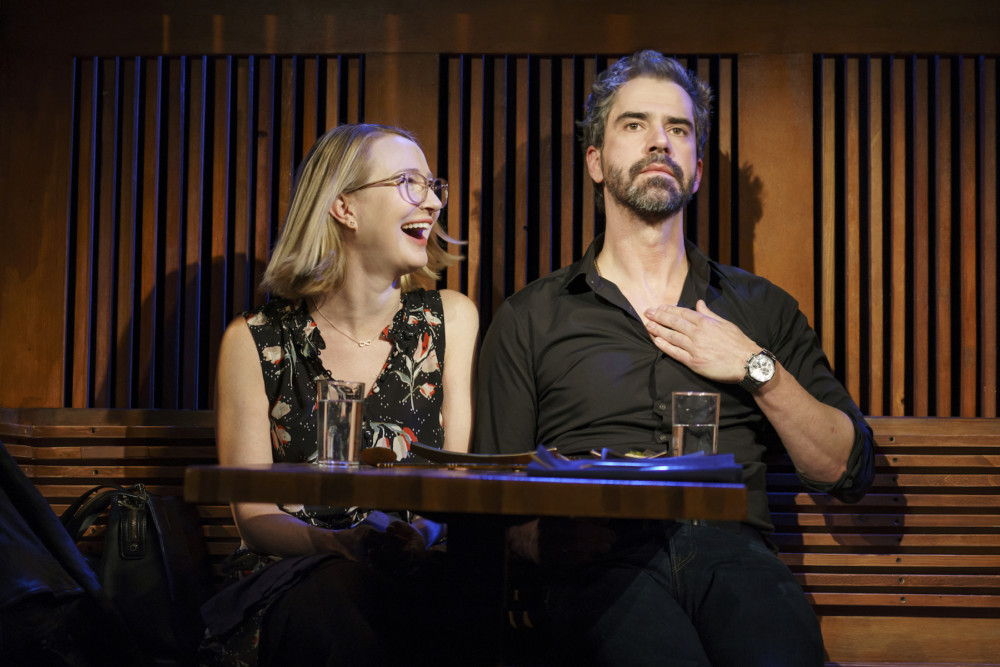By Carol Rocamora . . .
“If you don’t think this play is funny, you are missing a lot of my play.”
So writes playwright Dominique Morisseau in the program notes of Confederates, her high-spirited, high-stakes play that just opened at the Signature Theatre. And she’s smart to alert us. There is more going on in this ambitious new work about the serious subjects of slavery and institutional racism than one play should be able to hold. And yet she pulls it off with aplomb, thanks to her numerous daring choices, of which comedy is only one.
Take the opening remarks of Sandra (Michelle Wilson), the play’s protagonist, wherein she introduces herself as an accomplished, nationally recognized professor of political science (Black, tenured). She engages us immediately by listing all the recent plays and films she’s seen about slavery and its legacy (which we’ve seen, too). “There is nothing about slavery that is off-limits for me,” says Sandra, a published author who has appeared on CNN and MSNBC, calling out white supremacy. But there is indeed something off-limits. Something shocking has just happened in Sandra’s life, and she shows it to us: a giant photo of a Black slave woman nursing a white baby that someone posted on her office door at the university. The face of that woman has been photoshopped—and it is Sandra’s. She is determined to find whoever did this and put that student on academic probation.
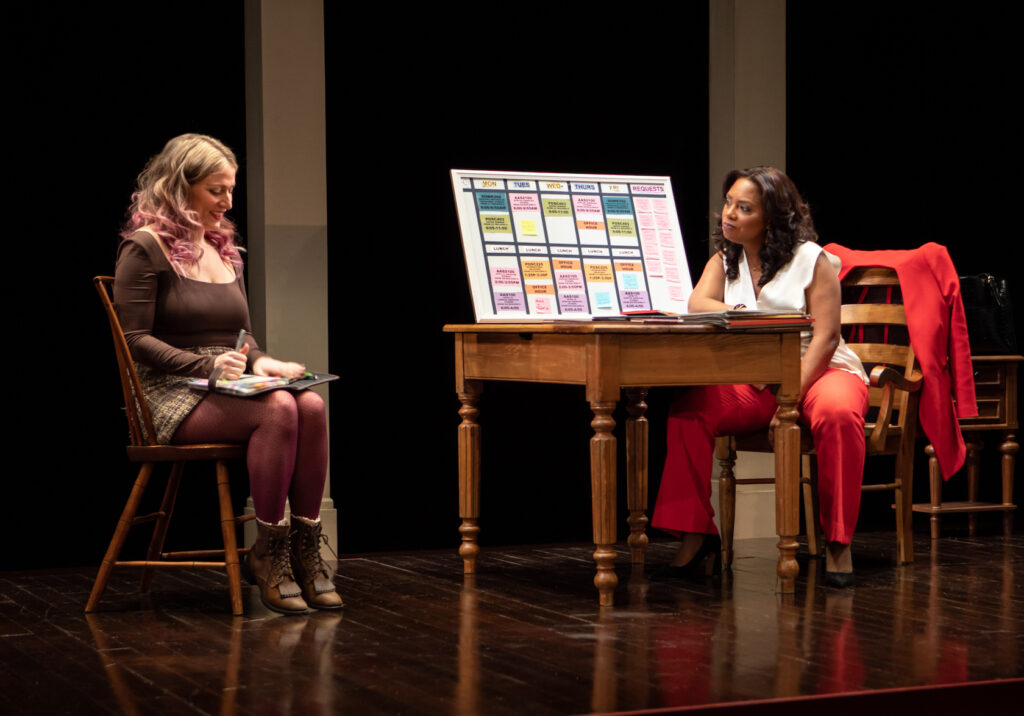
That single plotline—the solving of a mystery—would be more than enough to drive the entire play. But not for an ambitious writer like Morisseau, whose stakes are always high (Skeleton Crew, Pipeline). In the very next scene, we’re thrown back 160 years to the antebellum South, where we meet Sara (Kristolyn Lloyd), a feisty Black slave determined to find freedom by joining her brother Abner (Elijah Jones), a runaway now fighting for the Union Army. Sara has a lot going for her—she can read, taught secretly by the Missy Sue (Kenzie Ross), the Master’s daughter and Sara’s best friend since childhood. And now Missy Sue has offered her a new position—cleaning the Master’s house alongside LuAnne, another Black slave and the Master’s mistress (Andrea Patterson) so that Sara can spy on Missy Sue’s Confederate father and feed information to her brother Abner to help the Union Army. Armed with a rebellious spirit, intelligence and purpose, Sara is determined to rise up as a leader against oppression.
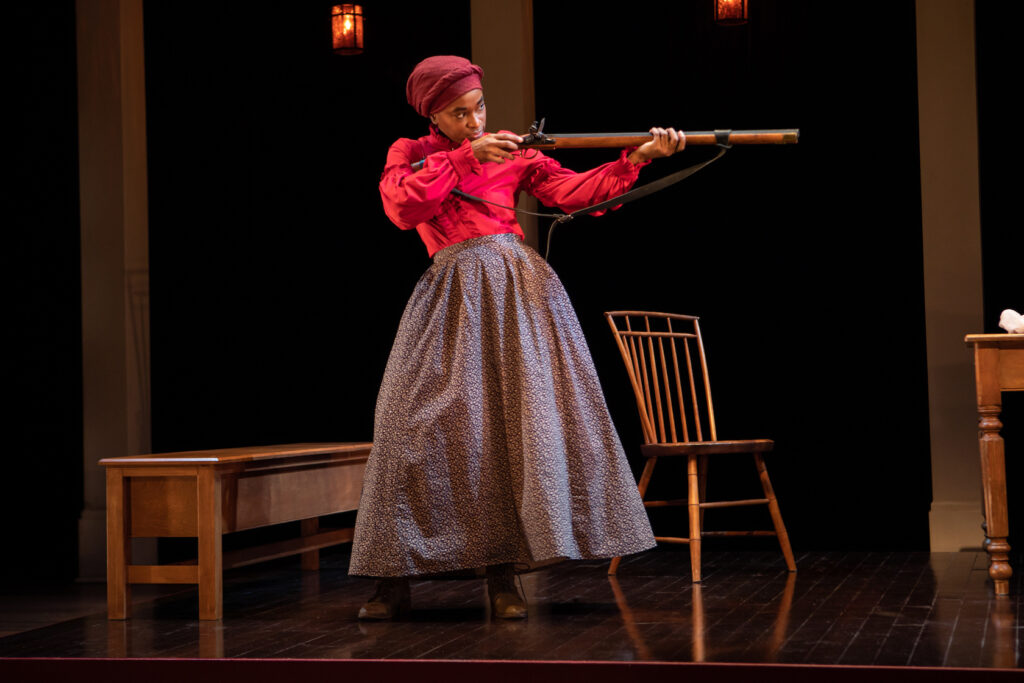

As the play is structured, each scene from the past is followed by one in the present, with four of the five agile cast members doubling in roles. In the present scenes, set in an American university, Morisseau introduces a number of characters besides Sandra, including Malik (Elijah Jones, again), a star Black student who is fighting for a better grade on his paper in Sandra’s class. There’s also Candice (Kenzie Ross again), Sandra’s white student assistant, whose scholarship is in jeopardy—and Jade (Andrea Patterson, again), a Black professor up for tenure. In a series of taut encounters, they address many of the complex and conflicting issues relating to racism in academia today. Malik accuses Sandra of grading him harshly because he is Black and she wants him to excel beyond reproach. He also accuses Sandra (a feminist) of favoring female students, and further suggests that the university favors Black female professors over males. Candice alleges that the university favors Black students over white for financial aid. Jade accuses Sandra of not supporting her for tenure because of jealousy and competition. And that’s not the whole litany of conflicting issues that plague Sandra, as she faces mounting pressure to find out who posted that shocking photograph. (No spoiler—the surprise is yours to discover).
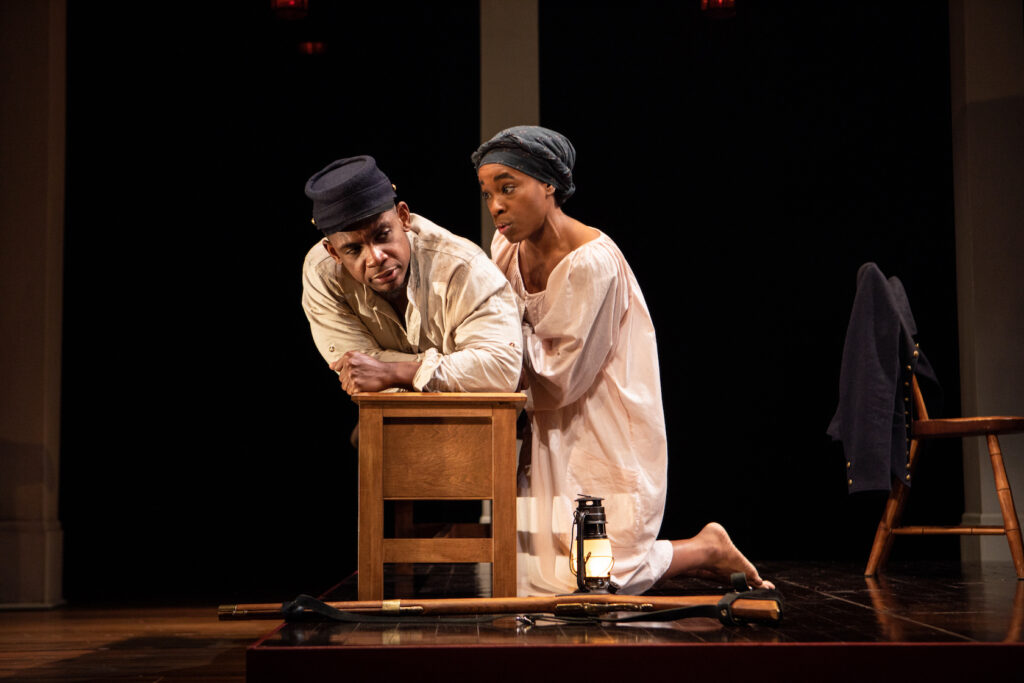

So what is the parallel plotline set in antebellum south doing in this play?! How do these two time frames connect? Morisseau’s message is clear. Her play is about freedom. In the case of Sara’s story, it’s freedom from slavery in the antebellum South and its devastating humiliations.
In the case of Sandra’s story, it’s freedom from “political correctness” in today’s academia that has confounded and confused the process of giving and getting an education, not to mention the hindering of true freedom of speech.
“Long as there’s a plantation, ain’t none of us free,” says Sara. That word “plantation” could refer to today’s university as well, Morisseau’s play suggests.
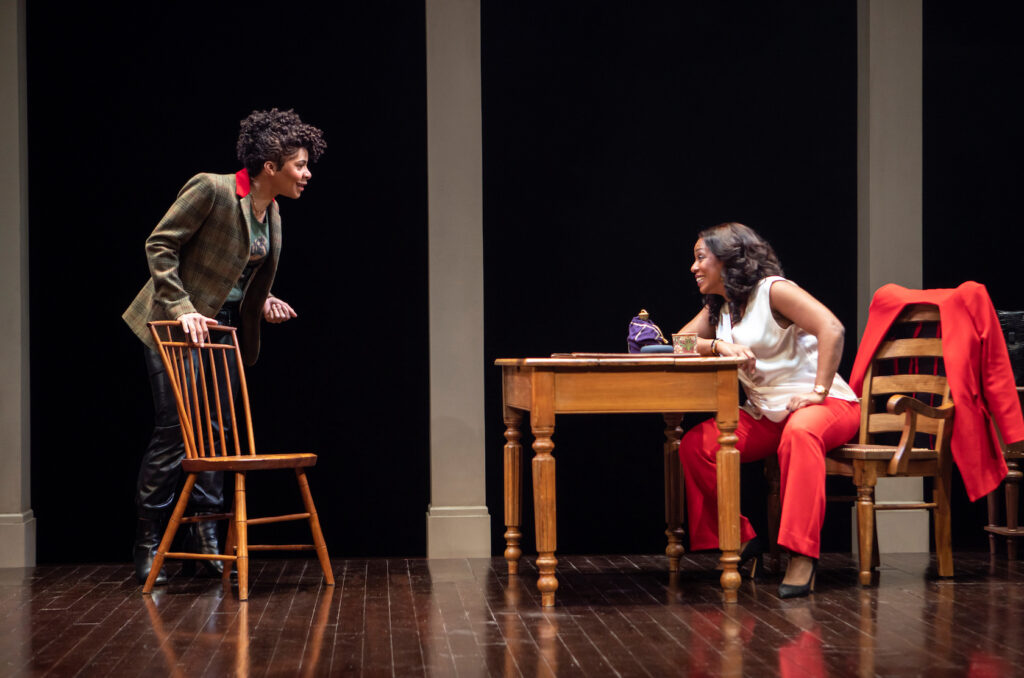

Director Stori Ayers skillfully navigates Confederates between the satirical and the serious, and the rewards are great. (Scenic design is by Rachel Hauk.) As she intends, Morisseau keeps us laughing, even as she focuses on the serious message of her play that she dedicates to Harriet Tubman and other Black women freedom fighters and scholars. In her program notes, Morisseau defines her play’s title (Confederates) as meaning “accomplices.” As that provocative title suggests, she’s inviting us all to join together as accomplices in this fight for freedom.
Confederates. Through April 17 at The Pershing Square Signature Center (480 West 42nd Street, between Ninth and Tenth Avenues). www.signaturetheatre.org
Photos: Monique Carboni


